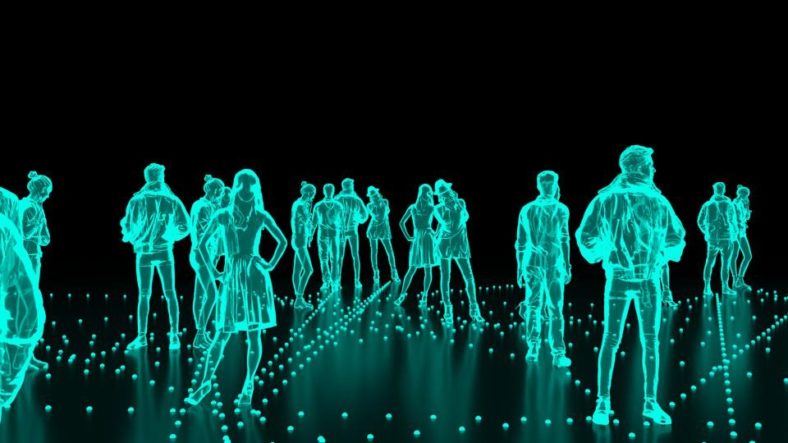Shamefully, ‘Selves’ isn’t a term I was familiar with, until wrote an article on MetaHumans, and was introduced to a fellow at the MIT initiative on the Digital Economy, called Michael Schrage. Michael has been doing collaborative research on ‘Selves’, and all the possibilities and opportunities they could bring us in the future.
Firstly, what are Selves?
Selves, in the simplest terms, are digital duplicates and doppelgangers of ‘Ones’. They’re analogous to the ‘digital twins’ you hear about for the ‘internet of things’. Ideally digital selves would amplify all of your best human aspects and attributes, to quote Michael. He also believes they should be designed to mitigate your lesser qualities. He wants a ‘digital selve’ nudging him to stop interrupting, based on our interview, or so I understand… 🙂
As he puts it, “These ‘multiple selves’, will yield more productive employees, more empathetic companions, and more creative thinkers — not merely automated attendants.” Michael is referring to current agent-based intelligent systems, such as Siri and Alexa, that help you with chores, calendars, lists and find information for you at speed. These current systems are responding with automated responses based on learning.
In short, Selves could be a disruptive future and evolution of our current automated attendants, with the advancements in AI and machine learning.
I asked Michael a few questions based on the above and his responses are below;
Q: Looking at Selves through a commerce lens, would a Selve, embedded into a digital mirror, know how to respond to a shopper query like “ I’m not sure which dress or suit looks best on me, what do you think?”
A: That’s (almost) exactly the right question, you want an ‘affective’ self to be able to advise ‘you’
Forgive the intrinsic gender orientation for this example – which dress is ’sexier,’ more ‘professional’ more ’stylish’ etc. based on the data-driven/recommender systems-enabled ‘preferences’ and ‘attributes’ that have been algorithmically inferred So a lululemon-like or AR ‘mirror’ should be able to ‘model’ dresses that (literally) reflect one’s ’selves preference’ – projecting ‘power and confidence’.
My design ethos emphasizes ‘agency’ and ‘choice’ – not the commanding approach.
Multiple selves are about empowering people to get greater ROI (return on introspection) on how they want to be seen and how they want to (in your use case) see themselves.

Q: And another use case, could be for a helpline for addiction to talk someone down from self-harming. How would a Selves respond differently?
A: wow, again – great question, there are now a ton of ‘mindfulness’ apps and other ‘mental health’-oriented ‘chatbots’ that could, indeed, be used to create a different/healthier dialogue/conversation with one’s self. But now we’re venturing into areas where I think more serious research needs to be done: i.e., would a ‘mental/emotional health’ self give better results than t third-party/therapeutic ‘bot’ from a health care service? these are non-trivial issues with enormous global repercussions and more research is needed.
Let’s look to the NHS, America’s National Institute of mental health and other research agencies to sponsor ‘selves-oriented’ mental health diagnostics and treatment.
Q: How effective are Selves today, in responding to emotional responses vs rational / functional?
A: Well, if one reads Hume, he persuasively argues, that ‘reason is a slave to passions’ – this research domain the entangling of ‘rational’ and ‘affective’ selves is the hottest in neurology, neurophysiology, cognitive psychology and social psychology, which is a long-winded way of saying, the science here not only isn’t settled, it’s barely begun. These are exciting times for how one imagines one’s future selves.
Q: Are Selves actually a reality today? If not, how far off are we from having AI that will deliver this?
A: I like to say/observe that most of the pieces are already here. They just haven’t been put together in a ’selves-oriented’ way. I believe the focus has been misplaced: we’re optimizing software ‘agents’ at the expense of cultivating effective/affective ’selves portfolios’, I think the future – 2025/6 – will increasingly be about multiple digital selves managing multiple software agents. Today, top decile productive manage multiple devices with multiple apps – some automation-oriented; others augmentation oriented; tomorrow, the most productive managers will manage teams of multiple selves, no, I’m not kidding.
The outstanding open question is whether those selves will be accessed via augmented and virtual reality interfaces versus a ‘new and improved’ mobile ‘phone’.
Conclusion
As you can imagine, the use cases for digital Selves would be extensive; interacting with a digital version of you, to aid in commerce situations, from buying groceries to even talking through the rational of buying your next car.
Selves remind me of a highly advanced version of this Gatebox (below), that I saw at CES, which launched in Japan. But as I said, Selves, if they become reality, would deliver way more benefits than a hologram companion, which I found a bit creepy to be honest.
It’s still not clear how Selves will come to life, and I would assume it could take any form; MetaHuman, Voice, hologram or abstract, it’s the content they will deliver that’s most important.
As Michael said, we are not there yet, especially with the more emotional decisions, such as the help-centre example. But, with better AI and machine learning, it will not be long before we will see commerce solutions everywhere.
I’m personally looking forward to meeting my digital Selves; I hope we like each other!
Reference Links
Michael Schrage is a research fellow at the MIT Initiative on the Digital Economy (IDE) and the MIT Sloan School of Management, and author of The Innovator’s Hypothesis: How Cheap Experiments Are Worth More Than Good Ideas.
Michael’s white paper: https://ide.mit.edu/wp-content/uploads/2017/03/IDE-Research-Brief_v217.pdf
Hume: https://plato.stanford.edu/entries/hume-moral/
Darren’s post on MetaHumans. https://www.linkedin.com/pulse/digital-humans-taking-over-darren-richardson/
Darren Richardson is a Digital Executive with over 20 years experience in bringing Technology and Creativity closer together for Brands.
